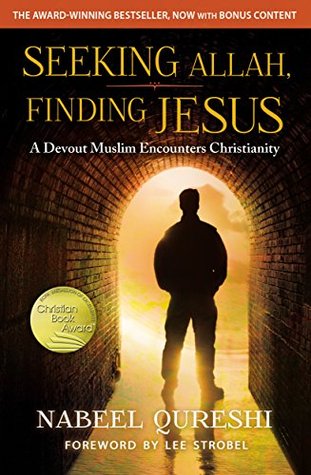More on this book
Community
Kindle Notes & Highlights
Read between
July 5 - July 21, 2023
In my teen years, Ammi would often reprimand my obstinacy by saying, “What good is it to tell me you love me when you don’t do what I say?” Later still, when I was considering following Jesus, I knew I was contemplating the one choice that would be far and away the greatest disobedience. Not only would my parents feel betrayed, they would be utterly heartbroken.
the emphasis on the words themselves leads many Muslims to neglect the meaning of those words. Muslims who recite the Quran regularly are regarded as pious, whereas Muslims who only contemplate the meaning of the Quran are regarded as learned. Piety is the greater honor, and most Muslims I knew growing up could recite many chapters of the Quran from memory, but rarely could they explain the meaning or context of those verses.
I also realized that I asked far too many questions for my relatives’ tastes. In our culture, elders are simply to be obeyed. Obedience is what shows them that you respect them and, in certain contexts, love them. Questions are often seen as a challenge to authority. In school though, our teachers taught us critical thinking and that it was good to question everything.
The culture clash of immigrant parents with their Western-born children is especially common during the emotionally stormy teenage years, and it serves to illustrate a vital fact: Muslim immigrants from the East are starkly different from their Muslim children born in the West.
This phenomenon creates stark dichotomies in the minds of Muslims raised in these cultures. An entity is either a source of authority or it isn’t. It is either trustworthy or suspect. It is either good or it is bad. Shades of grey are far less common among authority-based cultures.
On the rare occasion that someone does invite a Muslim to his or her home, differences in culture and hospitality may make the Muslim feel uncomfortable, and the host must be willing to ask, learn, and adapt to overcome this. There are simply too many barriers for Muslim immigrants to understand Christians and the West by sheer circumstance. Only the exceptional blend of love, humility, hospitality, and persistence can overcome these barriers, and not enough people make the effort.
When authority is derived from position rather than reason, the act of questioning leadership is dangerous because it has the potential to upset the system. Dissension is reprimanded, and obedience is rewarded. Correct and incorrect courses of action are assessed socially, not individually. A person’s virtue is thus determined by how well he meets social expectations, not by an individual determination of right and wrong.
On the other hand, when authority is derived from reason, questions are welcome because critical examination sharpens the very basis of authority. Each person is expected to critically examine his own course of action. Correct and incorrect courses of action are assessed individually. A person’s virtue is determined by whether he does what he knows to be right or wrong.
This reliance on positional authority explains some characteristics in parts of the Muslim world that confound many Westerners, such as the continued practices of honor killings, child brides of six or younger, and blood feuds. For one reason or another, the prevailing sources of social authority in these regions deem these customs acceptable, perhaps even preferable. No amount of sheer reason is going to change these practices, nor will externally imposed prohibitions. The change will have to be social, internal, and organic.
We wrestle with the honor-shame principle that tells us, “It’s okay as long as you don’t get caught.” If there is no dishonor, it is not wrong.


